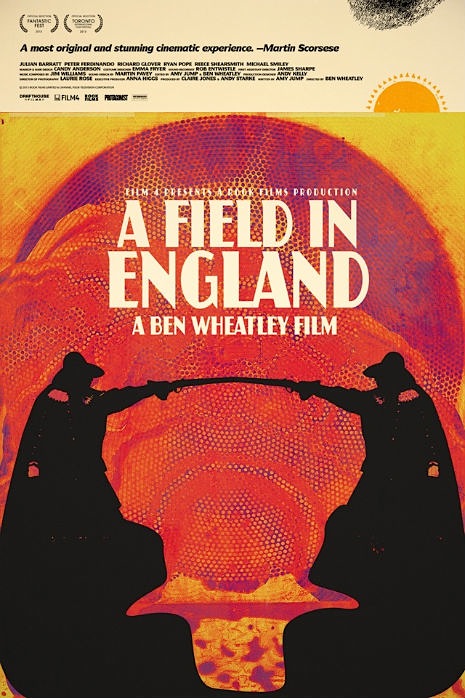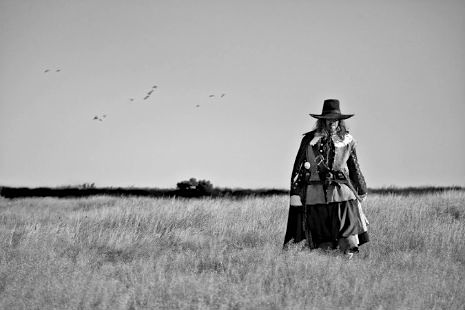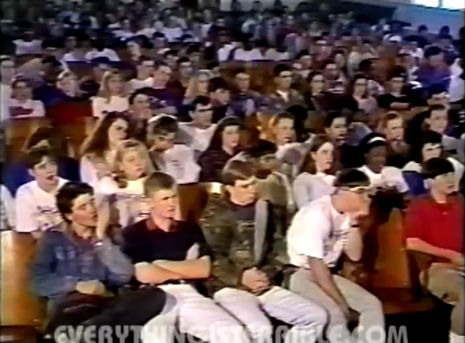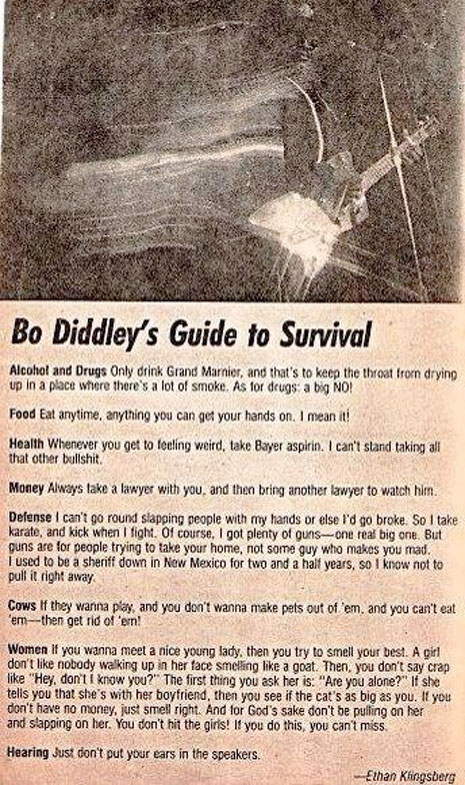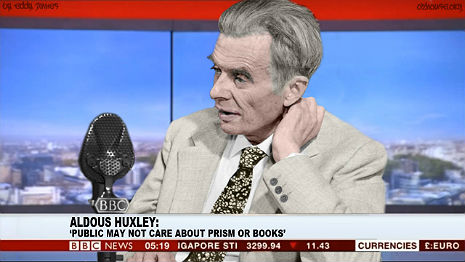
Luca Del Baldo‘s terrific cover portrait of Ballard
This review of The JG Ballard Book is a guest post from Graham Rae
Even though writer James Graham Ballard, the so-called “Seer of Shepperton,” died in 2009, interest in his far-seeing-and-reaching futurologist oeuvre has not waned any. More specifically, his memory and legacy have been kept alive by a dedicated band of Ballardians, as his devotees are known, who converse on a Yahoo group about every JGB-related topic under the (empire of the) sun.
One such dedicated Ballardian is Canadian Rick McGrath. He runs the excellent site www.jgballard.ca, where he has all manner of material on display about the writer – interviews, non-fiction, videos, etc. Shoot on over there and have a look for yourself. Fellow Ballardian James Goddard suggested to McGrath that he might try self-publishing a book, so he put out a call for material to various JGB-interested parties round the world, being pleasantly surprised at the response he got. The JG Ballard Book, of course, is the end result, and is also a self-confessed nod to RE/Search 8/9
, V. Vale’s seminal 1984 book which helped introduce Ballard to the American audience.
As I said, it’s self-published (easily available through the usual channels), being ex-adman McGrath’s first ever attempt at publishing, and I’d have to say it’s a damned fine-looking book. Starting with the great painting of Ballard on the cover by extremely talented, amiable Italian painter Luca Del Baldo, the book is jam-packed with 191 pages of well-reproduced full-color Ballard letters, interviews with hand-written corrections by the writer, bibliographies, etc; a real smorgasbord of juicy Ballardania for any fan of the writer. Color photos and cover reproductions and such jump from nearly every page of The JG Ballard Book, and it’s a real pleasure to look at from start to finish. This is a labor of love, and it really shows.
There are a huge amount of first-hand JGB reproductions here, and they’re great to see. I have a few letters from the man myself, having very occasionally corresponded with him in the 90s and noughties, and it’s always great to see his sometimes-cryptic handwriting detailing his deep-dish creative thoughts on some headscratcher existential mystery or other. Besides all the reproducing of JGB handwritten materials, there are also a lot of excellent interpretive articles by Ballard admirers in the book, focusing on some aspect of his work and discussing it at length.
Thus we have Peter Brigg examining the writer’s attempts at transcending/rearranging the human concept of time (“JG Ballard: Time Out of Mind,” a really thought-provoking piece); a discussion of why JGB has been so poorly served with his book covers and what might be done to rectify this, “Visualizing the Ballardian Image” (writer Rick Poynor reckons that ‘narrative figuration’ artist Peter Klasen’s splintered-view images, synchronous with Ballard’s writing during the 60s and 70s, would provide a great marriage of aesthetic minds); inspired-lateral-thinking piece “JG Ballard in the Dissecting Room,” where Mike Bonsall purchased a copy of the same edition of Cunningham’s anatomy book the young JGB used when studying medicine at Cambridge and points out passages in the writer’s work that could have been inspired by the dissection diagrams and explanatory texts; a travelogue of McGrath’s own visit to Ballard’s childhood Shanghai home in “JG Ballard’s Shanghai”; and many more.
Aside from analytical writings, McGrath and his fellow Ballardians (including David Pringle, JGB’s Scottish archivist, who tentatively announced last year his starting work on a definitive Ballard biography) have dug up things like rare interviews never collected anywhere before, or even expanded reprints of already-familiar Q&As. These reminded me of why I started reading Ballard in the first place. I always personally liked his interviews more than a lot of his writing, to be perfectly honest, all those amazing thought processes in full flow and flower, which is why I was so glad to see this sort of stuff included. The old-worldview-destroying firecrackers and depth charges of deep thought peppered liberally throughout the interviews and fiction were what kept me coming back to Ballard. Stuff like this, from the 1981 short story “News From the Sun,” as singled out by Peter Brigg:
“The whole process of life is the discovery of the imminent past contained in the present. At the same time, I feel a growing nostalgia for the future, a memory of the future I have already experienced but somehow forgotten. In our lives we try to repeat those significant events that have already taken place in the future. As we grow older we feel an increasing nostalgia for our own deaths, through which we have already passed. Equally, we have a growing premonition of our births, which are about to take place. At any moment we may be born for the first time.”
You just think about that for a while. Isn’t that just great? You just feel your brain being buffeted back and forth and up and down and round and about by the strength of Ballard’s intellect and ability at getting philosophical brainteasers down on the page, and it’s just a joy to sit and think about what he has said and run it through our minds, savoring the fine seditious vintage of his brilliant intellect. Nobody else has ever, to my knowledge, written like that, and nobody ever will again. Which is why Ballard’s death left such a huge, unfillable hole in world thought and literature.
And why books like McGrath’s are such a necessity and pleasure. Unlike his American counterpart-cum-literary-outlaw hero William S Burroughs, JG Ballard seems to have already started to slide from view into obscurity. At least on the American side of the Atlantic, that is; in the UK he is still venerated by the London media and chattering classes, and quoted fairly constantly by the likes of Will Self and John Gray, a rent-a-gob duo who seem boringly terminally fixated on JGB at the expense of their own thoughts on things. Still, all in the cause of keeping Ballard’s memory alive, so it’s all well and good. (Hopefully the announced production of High Rise will remedy this also.)
Ballard’s daughter Fay likes The JG Ballard Book a great deal, which should tell you something. It’s perfect for the hardcore Ballard enthusiast, though as an introduction to the writer I think it may be a bit esoteric, as it assumes a familiarity with the subject matter under discussion. But the interviews and interpretive pieces might provide an inroad into Ballard’s work and thought for those uninitiated would-be readers who wonder what all the fuss was and is about. McGrath, bolstered by the way the volume turned out, and the good reception it has had, is already planning a second volume to be published through The Terminal Press, his own wee publishing house. If the quality of this volume is anything to go by, with the amount of uncollected Ballardania floating round the world, the Canadian may be keeping JG Ballard’s memory alive for many years to come, and that would be nothing but a good thing.
A 2003 BBC profile of Ballard
Previously from Graham Rae on Dangerous Minds:
Scraping Foetus Off The Wheel: Nailing a whole lot of ‘Hole’ and ‘Nail,’ an exegesis







